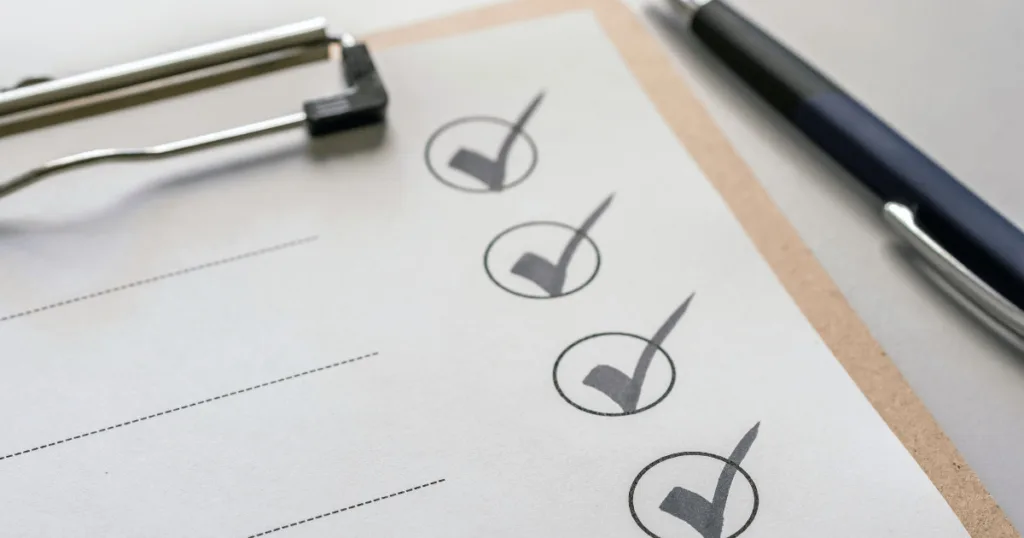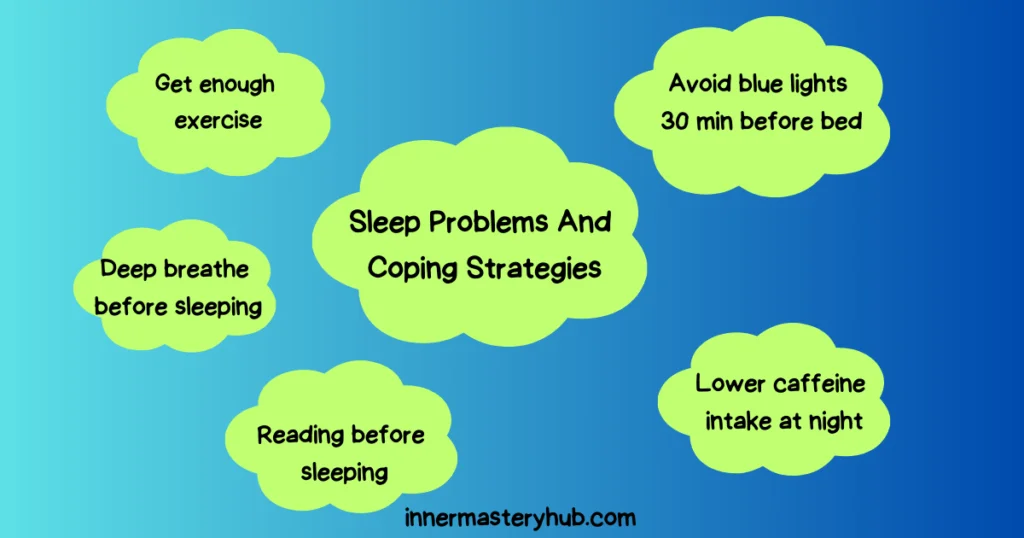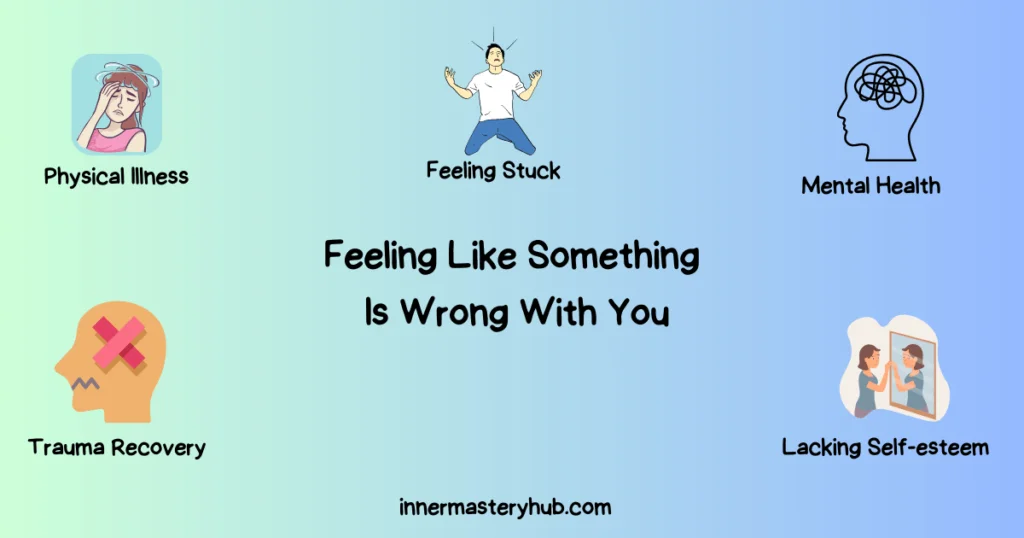
Among the ten personality disorders, the term “narcissism is one. It’s described as an exaggerated sense of identity. Don’t worry if you have had moments of narcissism. You’re not alone.
In one way or another, everyone is self-centered. Everybody has moments, whether thinking they’re the most attractive person in the room or the best candidate for their position. Everybody knows the places where they feel different and special.
However, if you experience an excessive need to feel unique and significant, you may be experiencing symptoms of narcissistic personality disorder. Early identification of narcissistic tendencies is critical since dealing with a narcissistic individual can be challenging. This essay will serve as an in-depth narcissist checklist, providing you with the skills you need to identify and deal with narcissistic traits.
Table of Contents
Signs of Narcissism
People who suffer from narcissistic personality disorder (NPD) frequently show five or more specific symptoms;
- Fragile self-esteem
- feelings of insecurity
- Lack of empathy for others
- Dismissive of others’ feelings
- Grandiose sense of entitlement
- Frequent fantasies of unlimited success, power, or brilliance
- Belief in self-importance and special qualities
- Exploitative behavior like gaslighting and toxic relationships
- Envy of others or belief that others are envious of them
- Arrogant and haughty attitudes or behaviors
- Manipulative tendencies to achieve personal gains
- sensitive to criticism or feedback
RELATED: Signs You Are A Woman with Too Much Masculine Energy
Narcissist Checklist: 25 Traits to Recognize Deal with a Narcissist
If you find most of these symptoms in a narcissist in your life, here is a comprehensive narcissism checklist ;
1. Public and Private Persona differ.
One’s public self and one’s private self do not align. When they are in public, narcissist personality types may appear to be charming; yet, when they are behind the scenes, they distort reality and show many characteristics that do not portray their real image.
As a result of the fact that a narcissist places a high level of importance on their public image, it is not uncommon for them to present a false or inaccurate image of themselves to individuals whom they wish to impress. Quite frequently, what you see in a person’s internal world is inconsistent with what others see when they examine them from the outside.
2. Lack Of Empathy
One of the most important qualities that narcissists regularly show is a lack of empathy. The ability to understand and empathize with the feelings and needs of other people is a challenge for them. They frequently ignore other people’s feelings and requirements and put their desires and needs ahead of anything else.
3. Loyalty is Superficial
At most, loyalty towards you is considered to be superficial. Even though they are obsessed with themselves, narcissists believe that you should continue to show devotion to them. On the other hand, such quality is not reciprocated by them. The narcissistic supply is dependent on you for the attention you give to them.
Put another way, you are there to encourage them to feel better about themselves, and it is your responsibility to demonstrate how grateful you are to have them as a partner. There is a possibility that they will show some loyalty towards you if and only if you help them fulfill their requirements.
4. Manipulative Behavior
Narcissists make some of the best manipulators. They employ a range of tactics, such as guilt-tripping, gaslighting, and emotional blackmail, to impose control and authority over others. They exploit others’ vulnerabilities to serve their own agendas.
5. They refuse to admit mistakes.
They are unable to tolerate any form of error. While in any relationship, blunders, misunderstandings, and vulnerabilities will become more chaotic the longer you are in that connection. But that should not come as a surprise. Nevertheless, narcissists are unable to acknowledge their humanity because they have such a strong need to be “better than” others.
They will either point the finger of blame, present an alternative set of facts, or make excuses. However, it is particularly challenging for them to admit, “Yeah, I blew it.” Worse and worse, this puts them in a position where they are more likely to fail repeatedly.
6. Sense Of Entitlement
The belief that they are entitled to special treatment and privileges is a common trait among narcissists. Without question, they anticipate that others will fulfill their requirements and gratify their aspirations. The boundaries and rights of others are not something that they give much thought to.
7. Failure to Take Accountability
Taking responsibility for their acts is something that narcissists rarely do. They are unwilling to admit their errors and instead continue to shift responsibility onto others. They will go to tremendous lengths to safeguard their reputation and avoid criticism.
8. Feelings of Jealousy and Envy
Narcissists find it difficult to control their feelings of jealousy and envy when others are praised or given attention. They have trouble appreciating and acknowledging the accomplishments of others, and they could even try to diminish or invalidate them.
9. Emotional Manipulation
Experts at controlling others’ emotions and sentiments are narcissists. They are adept at controlling situations, making people feel bad, and using emotional manipulation to get what they want. They are capable of being convincing and charming when it suits them.
10. Attention-Seeking Behavior
In order to guarantee that they are the center of attention, narcissists will do whatever it takes. People often act in a theatrical manner in order to get reactions from others. In order to keep everyone’s attention, they could fabricate tales, start arguments, or engage in actions meant to draw attention.
11. Superiority Complex
The sense of superiority that narcissistic people possess is too intense. In terms of their accomplishments, talent, and intelligence, they believe they are better than others. They routinely belittle and humiliate those they perceive to be beneath them.
12. Not Active in Self-Reflection
Narcissists find it challenging to participate in self-reflection and introspection. They rarely think about what they are doing or how it might impact other people. When their flaws or mistakes are pointed out to them, they often become defensive.
13. Fragile Self-Esteem
Despite their grandiosity, narcissists have a weak sense of self-worth. The respect and appreciation they get from others is what gives them a sense of value and worth. They may have feelings of inadequacy and uneasiness regarding themselves as a result of any criticism or perceived danger to their self-image.
14. Never-ending Need for Validation
Narcissists have an ongoing desire for validation throughout their lives. The praise, adoration, and attention from other people maintain their exaggerated sense of self-worth. Some people may experience emotions of emptiness and worthlessness if they do not receive affirmation from other sources.
15. Fear of being rejected
Even though they appear to be self-assured, narcissists have a substantial dread of being rejected. They can’t deal with criticism, rejection, or desertion. Because of this fear, they have an insatiable want for continuous validation and adoration.
16. Lots of advice that was not asked.
As a result of their arrogance and excessive self-assurance, narcissists are not shy in “suggesting” how you should behave, think, prioritize, and govern your life.
They may try to conceal their intentions by claiming they are merely attempting to assist, but their lack of patience and intolerance proves this is not the case. Narcissists tend to be overly eager to help others, and when the person they are trying to help is hesitant, they will, as is to be expected, accuse that person of being inconsiderate.
RELATED: 5 Shadow Work Books that Will Shine a Light on Your Inner Self
17. Idealized Illusions
The pursuit of idealized illusions is a common practice. Narcissists, who are obsessed with themselves and have a sense of entitlement, tend to have idealized ideas about how they ought to be treated or how they should be treated. They are strongly attracted to topics of fame, prestige, and materialism.
To a large extent, their attention might be occupied by sensual needs when they are exposed to sexually explicit kinds of entertainment. Having the company of “the beautiful people” is something that they much prefer. They fantasize about living a life of adoration and being linked with esteemed persons.
RELATED: Unveiling the Illusion of Choice
18. Intensely Power Oriented
They like power-related persons, themes, and activities. Narcissists want to dominate every interaction. They can respect bullies who always get their way. They may enjoy stories of overpowering power and intimidation. They can appreciate leaders with few peers. Insensitive narcissists applaud the aggressor.
19. Emotionally vulnerable
Being vulnerable emotionally is awkward. Narcissists may feel “out of their element” when expected to display compassion or service. They may pretend to care about others’ needs when pressed, but they don’t want to touch others’ hearts over time. Emotional sensitivity involves empathy, which they do not value. Functional interactions are preferred above emotional ones.
RELATED: 8 Ways to Boost Your Emotional Curiosity
20. Continuing to ignore others’ feelings.
Narcissists think black/white, all/nothing. They like predictable, self-serving interactions. When others’ preferences differ from the narcissist’s, binary thinking is used. They believe that if you don’t feel right, you’re incorrect. They don’t realize your emotion is valid or that they may learn from you. Instead, you must change your thinking to make the narcissist happy. They ignore nuance and don’t care why you see things differently.
21. Constant discomfort.
Narcissists barely hide their tension. Due to continuous supply needs, they are intolerant of others’ disobedience. The least suggestion of disagreement or insubordination can agitate and judge the narcissist. Living and working with narcissists often requires “walking on eggshells.” They know narcissists would complain or pout soon.
22. Double Standards
Narcissists believe they are superior to others and do not follow the same standards. For instance, they hate when others are upset at them yet feel right when the opposite happens. Or you spend money worse than they do. “My understanding of life is so much better than yours,” they say.
23. Neglected boundaries.
Start with defining who you are and how you prioritize life. Narcissists, ever-impressed with Self, believe they should control your life. They get upset when you follow your well-thought-out intentions instead of recognizing your right to define yourself. They shame you, become bossy, and coerce you. Narcissus doesn’t value diversity.
RELATED: Stop Chasing People: Reclaim Your Energy and Attract the Right Relationships
24. Poor love perception.
Put, narcissists struggle to understand love. They enjoy being enamored because it lets them believe they can and should be perfect. When love demands patience and tolerance, disillusionment swiftly sets in. They want just conformity in relationships, indicating they are needy persons seeking narcissistic supply.
RELATED: Is Love Truly an Illusion? Exploring the Myth
25. Authenticity lacks
They are not familiar with the concept of authenticity. They present an appearance of superiority, passive-aggressiveness, and success by donning masks and adopting personas to achieve this. Their genuine selves are kept disguised, and they may alter their conduct depending on the audience they are interacting with.
15 Narcissist Checklist Questions
These questions will help to spot manipulative tactics, attitudes, and behaviors to identify a narcissist:
- Do they seek the need for admiration and validation from others?
- Is there a lack of genuine empathy or understanding of others’ feelings?
- Do they exhibit a grandiose, excessive sense of self-importance, self-confidence, or superiority?
- Are they preoccupied with the fantasy world of unlimited success, power, or beauty?
- Do they believe they are unique, have high self-esteem, and should only associate with equally special individuals?
- Is there a pattern of exploiting others to achieve personal goals?
- Do they display envy towards others or believe others are envious of them?
- Are they prone to arrogant and haughty behaviors?
- Do they manipulate situations or people to maintain control and dominate?
- Is it challenging for them to accept criticism or feedback without becoming defensive?
- Do they have a history of troubled relationships?
- Do they have a pattern of impulsive or reckless behavior?
- Do they react poorly to criticism?
- Do they take pleasure in the misfortunes of others?
- Do they have a fragile self-esteem or fragile ego?
What to do if someone you know has traits like this Narcissist Checklist?
Understanding narcissists’ thoughts and actions is essential for dealing with them. Knowing the indications of a narcissist checklist helps you create boundaries, safeguard your emotions, and avoid their manipulation. Knowledge and assistance empower you to handle narcissists.
It’s essential to protect yourself from narcissists. Asking for support and advice from trusted friends, family, or professionals can help you negotiate these difficult connections.
Final Thoughts About The Narcissist Checklist
When it comes to preserving healthy relationships and protecting your well-being, it is essential to recognize and deal with narcissistic persons. Through the use of this narcissist checklist, we have gained an understanding of the characteristics and actions that narcissists typically display.
This Narcissist Checklist is by no means accurate, but it can provide you with valuable insights into the numerous ways in which narcissists can interfere with your quality of life.
FAQS
How to spot a narcissist?
Today, “narcissism” is used generically to refer to both characteristics and NPD.
In toxic relationships, emotional involvement distorts judgment, making this difficult to recognize.
This mini-course explains the psychology behind Narcissistic Personality Disorder and helps you spot red flags in relationships with narcissists and their mind games.
What is the one question to identify a narcissist?
Narcissists can’t be identified with one inquiry; diagnosis requires a thorough evaluation. Asking about their empathy or consideration of others’ opinions can reveal narcissism. Professional evaluation is essential for diagnosing narcissistic personality disorder.
How do you test if he’s a narcissist?
Narcissism is characterized by self-importance, lack of empathy, and a need for praise. Check his behavior, exaggerated accomplishments, and lack of empathy. For correct diagnosis, consult a psychologist.
What are the big 5 personality traits of a narcissist?
The Big Five Personality Traits, the Five-Factor Model, include Openness, Conscientiousness, Extraversion, Agreeableness, and Neuroticism (OCEAN). A narcissist may exhibit low levels of agreeableness and high levels of extraversion, dominance, and a lack of empathy, but individual traits can vary.
How to deal in relationships with a narcissist?
Set healthy boundaries, maintain self-esteem, and seek support from friends or professionals to get away with the narcissist’s manipulative conduct. Practice assertiveness, communicate calmly, and prioritize your well-being. Consider counseling or therapy to navigate challenges. Ultimately, self-care is crucial when managing a relationship with a narcissistic individual.
What are covert narcissists?
A covert narcissist is someone who displays narcissistic traits, but their behavior is more subtle and less overt narcissistic than that of overt or grandiose narcissists. They may appear shy, reserved, or even humble, yet still possess a strong sense of entitlement, lack of empathy, and a preoccupation with their needs and desires.
What is pathological narcissist checklist?
Pathological narcissism is a severe and long-lasting form of NPD. Pathological narcissists are grandiose, lack empathy, and need adoration. This disorder can severely damage relationships and functioning. Diagnoses and treatments often require professional help.
female narcissist checklist
Envious of others.
Superficial charm.
Preoccupation with fantasies of unlimited success.
Difficulty recognizing others’ needs and feelings.
Covert narcissist checklist
Self-absorption masked by humility.
Secretive and private.
Plays the victim role.
Difficulty handling criticism.
Projecting insecurities onto others.
Is there any narcissist checklist test
It’s crucial to understand that personality disorders cannot be definitively diagnosed via online questionnaires or assessments. For a precise evaluation, speak with a mental health specialist. However, some typical characteristics linked to narcissism are mentioned in this post.






